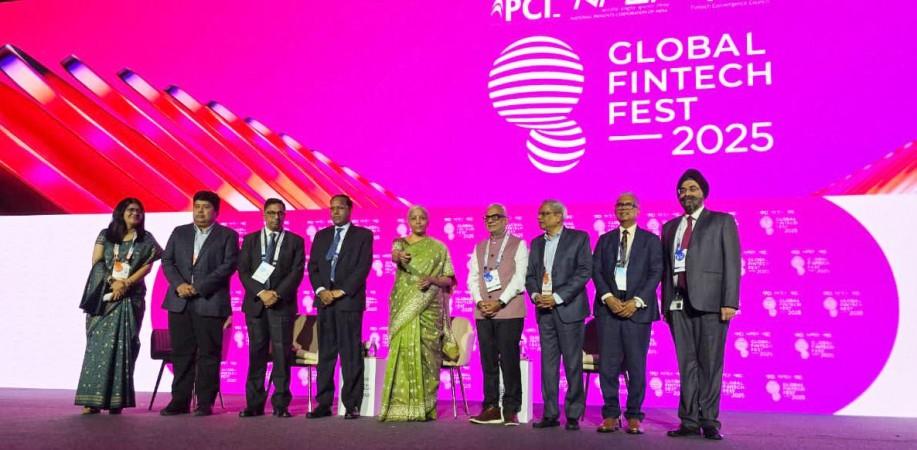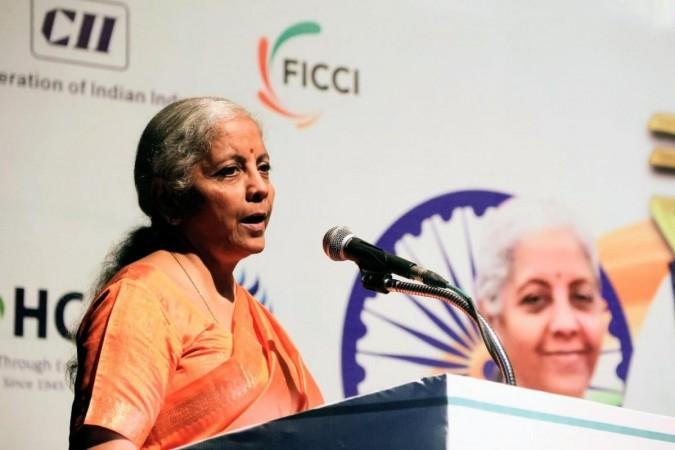
As the world's financial and technological elites converge at the Global Fintech Fest 2025 in Mumbai, it is clear that India is no longer a participant in the fintech revolution it is the stage upon which the future of financial power is being redefined. The gathering of over 7,500 companies, 1,000 speakers, and delegates from 100 nations marks more than an economic conference; it marks a geopolitical inflection. What began as a national effort for financial inclusion has matured into a strategic assertion of digital sovereignty and technological leadership.
"Fintech is no longer the story of startups; it is the story of states," observed a keynote speaker at the opening session. The statement captured the new reality: fintech has evolved into a pillar of national strategy, a means through which economic flows, algorithmic influence, and data intelligence converge into instruments of statecraft.
From Inclusion to Influence: Fintech as Geoeconomic Leverage
In the past decade, India's digital transformation has created a new category of power financial infrastructure power. Unlike military or industrial might, this form of power is silent, connective, and deeply embedded in global flows of data and value. The Unified Payments Interface (UPI), India's flagship system, is now not merely a domestic success story; it is the world's largest financial protocol, processing over 12 billion transactions monthly and extending its reach across continents.
India's UPI corridors to Singapore, France, UAE, and Sri Lanka, and the planned linkages with Africa and Latin America, are quietly rewriting the geography of financial influence. "When nations adopt another nation's payment rails, they adopt part of its economic rhythm," noted a senior economist at the fest a profound reminder that digital interdependence is the new form of financial alignment.
A World Economic Forum (2025) study estimates that digital financial ecosystems now contribute 10% of global GDP, with India contributing disproportionately to growth per capita. The country's Digital Public Infrastructure (DPI), integrating Aadhaar, UPI, and DigiLocker, has generated nearly $200 billion annually in measurable economic value a figure that no longer describes development alone but describes power.
The Strategic Triad: Data, AI, and Digital Trust
The modern financial order is increasingly defined by a triad data, artificial intelligence, and trust. These three constitute the foundation of fintech sovereignty. India's approach has been distinct: instead of relying solely on market giants or state monopolies, it has constructed a federated and interoperable digital ecosystem that empowers millions of micro participants.
The Reserve Bank of India's Digital Payments Vision 2025 and the MeitY's Digital India 2.0 have converged into a cohesive strategic model, positioning India as a trust-led fintech power. According to PwC India, fintech investments rose by 38% year-on-year, touching $9.8 billion in FY 2024–25 the highest in Asia outside China.
"Trust," as Nandan Nilekani reminded the audience, "is the new reserve currency." In an era where AI governs lending, credit scoring, and compliance, the country that controls digital trust not just digital code will control the new flow of capital. India's open frameworks like Account Aggregator, OCEN, and India Stack demonstrate that power can coexist with openness, and security can coexist with participation.

This is India's genius to build public digital goods that serve both state and citizen, balancing innovation with inclusion. Where Silicon Valley scales profit and Beijing scales control, New Delhi scales trust.
UPI Diplomacy and the Architecture of Influence
No recent initiative has blended technology and statecraft as elegantly as UPI diplomacy. Through cross-border payment integrations with Singapore (PayNow), UAE (CBUAE), and France (Banque de France), India has pioneered a new form of soft power financial interoperability diplomacy.
According to a Brookings Institution (August 2025) analysis, "India's digital payments exports represent a unique model of South-South cooperation one based on trust networks rather than debt networks." In essence, India's fintech expansion is building bridges, not dependencies.
"Digital infrastructure is the new Silk Road, and APIs are its trade routes," remarked an Indian official at the fest. The analogy is apt: India is exporting not goods or money, but the architecture of financial trust, which is harder to replicate and far more enduring. Through this architecture, India is shaping an alternate axis of global financial connectivity one that runs through Mumbai, Singapore, Nairobi, Abu Dhabi, and Paris, not merely through New York and London.
AI, Cyber Resilience, and the Future of Financial Statecraft
If UPI represents India's outward projection, the integration of AI and cyber resilience represents its inner strength. The AI4FinTech initiative, jointly led by RBI, MeitY, and NITI Aayog, is deploying artificial intelligence in risk detection, fraud analytics, and predictive regulation a step that few nations have institutionalized.
NASSCOM reports that over 60 Indian fintech startups are already using AI to automate compliance, financial forecasting, and sentiment analysis. These developments hint at a future where financial regulation becomes adaptive, real-time, and self-learning.
Yet as the fintech web expands, so does its exposure. Hence, the proposed National Fintech Cyber Resilience Framework (NFCRF) will serve as a "strategic firewall for digital sovereignty", using AI-enabled monitoring systems to secure real-time transaction networks. As RBI Governor reminded delegates, "Digital trust must be protected with the same seriousness as national borders."
This marks the emergence of financial defense as a strategic discipline a concept where algorithms, data centers, and cryptographic protocols become the frontlines of sovereignty.

The New Architecture of Power
In classical geopolitics, power rested on territory and trade. In modern geopolitics, it rests on technological architecture — the ability to design, control, and export systems upon which others depend. Fintech now occupies that space.
The United States wields global dominance through SWIFT, Visa, and dollar settlement mechanisms. China leverages UnionPay and WeChat Pay across its Belt and Road digital ecosystems. India's model is emerging as the third way transparent, open, and trust-driven.
"India seeks not to monopolize but to multiply," said an Indian diplomat during a bilateral fintech session. This distinction between hegemonic control and cooperative leadership defines the moral geometry of India's digital power. Through India Stack, India offers the world an open-source alternative to proprietary dependency. In doing so, it is transforming financial architecture into a new instrument of soft power and strategic autonomy.
Digital Rupee and Monetary Sovereignty
India's Central Bank Digital Currency (CBDC), or Digital Rupee, represents the next frontier of monetary sovereignty. While 134 nations are exploring CBDCs, few have achieved operational scale. India's pilot is not just technologically advanced; it is philosophically distinct merging centralized accountability with decentralized efficiency.
The Digital Rupee, once linked with UPI and RuPay, could create a domestic payment ecosystem immune to external sanctions or currency manipulation. It also opens the door to cross-border settlements that bypass legacy systems dominated by the West.
"Control over data and currency flow is the 21st-century equivalent of controlling trade routes," observed an academic panelist at the fest. In that sense, India's fintech ecosystem is becoming the maritime corridor of the digital age securing both financial independence and global credibility.
Domestic Depth, Global Reach
While India's global fintech stature grows, its domestic reach remains profound. With 1.2 billion Aadhaar-linked accounts, 93% of all retail payments digital, and over 500 million active UPI users, India's fintech revolution has achieved what many nations aspire to — mass digital empowerment without excluding the marginal.
According to NPCI, digital lending exceeded ₹1.6 lakh crore last year, with microcredit expanding rapidly across Tier 2 and Tier 3 cities. The Observer Research Foundation's 2025 Fintech Inclusion Report found that 42% of new fintech entrepreneurs are women, redefining grassroots economic leadership.
This internal transformation underpins India's external credibility. A nation that can digitize at the base can lead at the summit.
Fintech and the Future of National Power
The debates in Mumbai this week reveal a deeper recognition that fintech is the new grammar of power. Just as industrialization shaped the 19th century and information technology defined the late 20th, fintech is shaping the geopolitical economy of the 21st.
India's ascent in this domain is not accidental; it is the outcome of deliberate policy, public infrastructure design, and a philosophy of inclusion. "Our fintech movement is not about replacing the old financial order it is about humanizing it," stated Minister Rajeev Chandrasekhar, summarizing India's ethos at the fest's closing session.
To sustain this rise, India must pursue three strategic imperatives:
A. Deepen international interoperability of UPI, RuPay, and CBDC systems as instruments of diplomacy.
B. Institutionalize AI regulation that keeps pace with innovation without curbing creativity.
C. Establish a National Fintech Security Command, ensuring cyber and financial resilience as one integrated domain.
Strategy at Digital Speed
The Global Fintech Fest 2025 has announced not merely a set of innovations but a shift in civilization's wiring. India stands at the confluence of technology, finance, and governance crafting a model that others can trust, adopt, and emulate.
"The power of tomorrow will belong to nations that can synchronize intelligence with integrity," remarked a senior delegate. India's fintech journey exemplifies that synchronization blending public purpose with technological precision.
As the lights of Mumbai reflect on the glass façades of the Jio Convention Centre, one message resonates unmistakably: India is scripting the world's next financial architecture. This architecture is open, intelligent, and inclusive an infrastructure of influence built on trust.
In this new age, where strategy must operate at digital speed, India's fintech ascent is not just economic progress; it is the rise of digital statecraft as a defining instrument of 21st-century power.
[Major General Dr Dilawar Singh is an Indian Army veteran who has led the Indian Army's Financial Management, training and research divisions introducing numerous initiatives therein. He is the Senior Vice President of the Global Economist Forum AO ECOSOC, United Nations and The Co President of the Global Development Bank.]

















